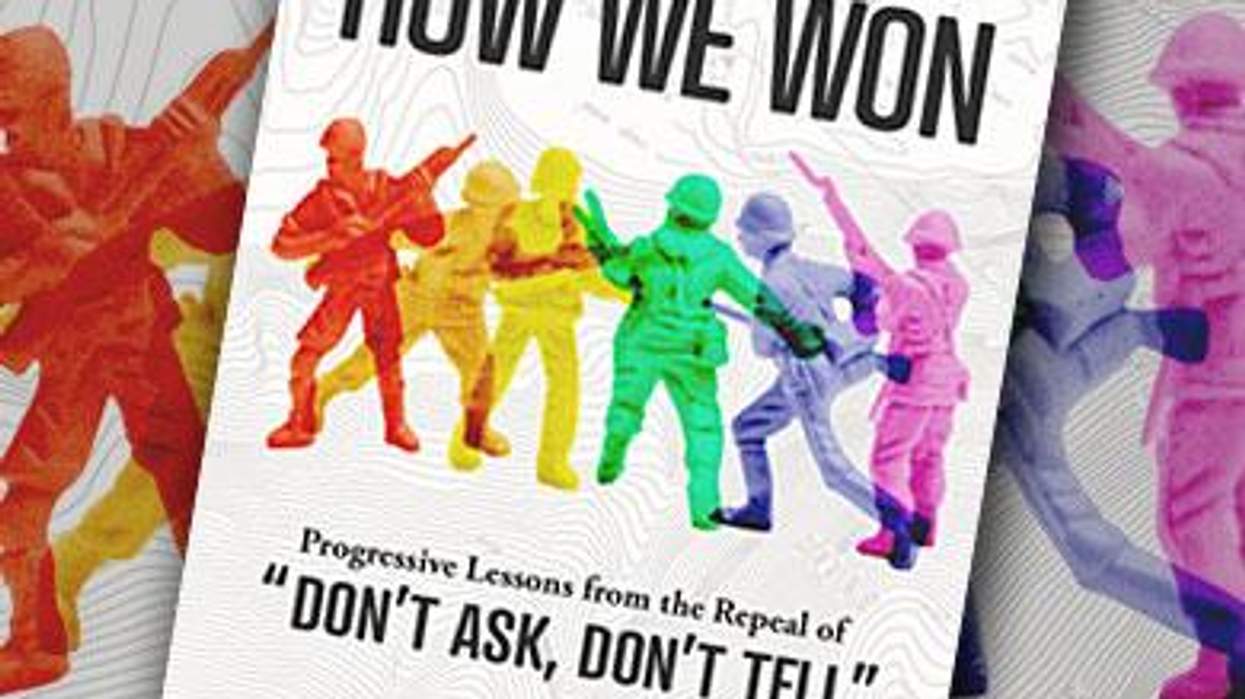As the founder and director of the Palm Center, a research institute that focuses on areas of gender, sexuality, and the military, Aaron Belkin has long has been one of the nation's leading experts on and advocates for the repeal of "don't ask, don't tell." In addition to having delivered more than 30 lectures on the subject at military universities across the country, Belkin is the author of How We Won, a new eBook published by The Huffington Post.
In the book, Belkin shares an insider's perspective on the strategies he and others used to convince the public that openly gay and lesbian soldiers would not harm the military -- a tactic that he says was essential in convincing Congress to repeal DADT.
The Advocate: What is the most important lesson we should take from the repeal of DADT?
Aaron Belkin: Those who opposed allowing gay men and lesbians to serve openly rarely admitted the true basis of their policy positions, namely intolerance. Because they were afraid of being honest about their views, they invented the phony argument that repeal would undermine unit cohesion. One key lesson of the repeal campaign is that if you tell the truth again and again -- and back up your position with research and evidence -- you can triumph over the forces of intolerance.
How can we apply the lessons learned from DADT to other equality issues?
I'll speak as a progressive, though I understand that many in our community identify as conservatives. Progressives have been advised to get smarter about messaging and "framing," but I think that our main problem isn't packaging, but rather having the courage to stand up behind our ideas. Take national security. I think most progressives understand that excessive military strength is dangerous. Consider, for example, that American military support for dictators who torture their own people enrages main street in the Middle East, and sometimes incites people to become terrorists. But how often do you hear progressives making that point? Because we sometimes shy away from our ideas, we fail to provide cover for our leaders, and it should come as no surprise that many Democratic office holders believe that they have to appear to support military strength. If we believe that spending more on the military than all of our enemies combined undermines our security, we have to use research to confirm that notion, and then and then engage in a long term conversation with the public.
What kind of effect do you think the repeal of DADT will have on the future of the Defense of Marriage Act?
In most countries that allow gay marriage, the repeal of the military ban came before the extension of marriage equality. This doesn't mean the lifting of a ban automatically ushers in marriage equality, but it can certainly play a facilitative role. When gay service members come back from war and explain to the public that their spouses are not entitled to death benefits or health care, this could have an important impact on the debate.
Do you foresee any disastrous effects to the military as a result of gay soldiers serving openly?
There may be isolated adjustment problems, but the research is quite clear that overall, there will be no negative impact on readiness, cohesion, morale or any other aspect of military performance.
Moving forward, what will the Palm Center be focusing on?
We're doing some research on transgender troops in Canada, and we're monitoring whether or not the Pentagon's implementation of repeal goes smoothly. We won't go out of business but we'll probably scale back.
For more on How We Won, click here.















